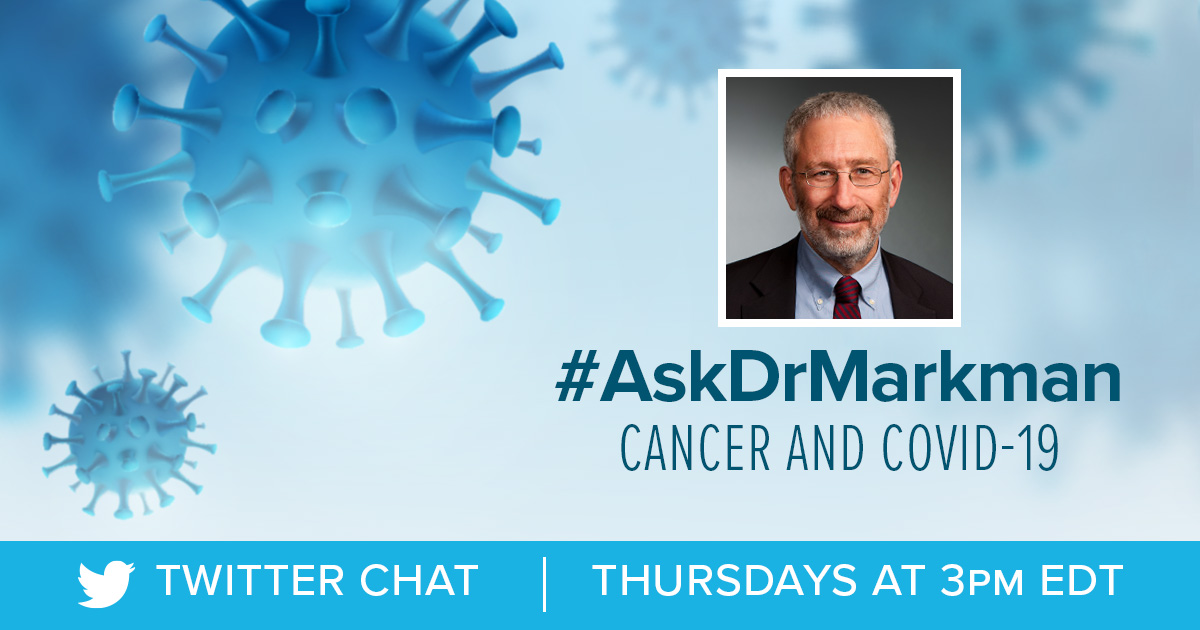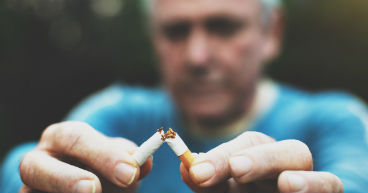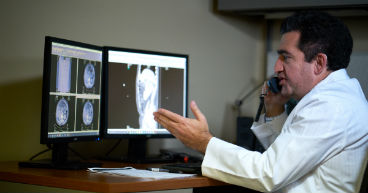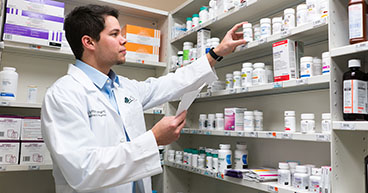
The COVID-19 pandemic has created a constantly evolving flow of new and sometimes confusing information. Cancer patients have many questions about how the virus may affect them, their access to ongoing treatments, their overall health and steps they can take to help reduce risk of infection. Maurie Markman, MD, President of Medicine & Science at Cancer Treatment Centers of America® (CTCA), has launched a weekly Q&A hosted on Twitter to answer your questions, in real time and as questions are sent to us online and by phone. Follow us on #AskDrMarkman. Here’s this week’s chat:
Question: I recently read that a COVID-19 infection could cause blood clots, which makes me even more worried about getting the virus because I had a bad experience with blood clots while receiving chemotherapy for my cancer. Is what I read true?
Answer: Your concern is understandable. Yes, it has been reported that a blood clot, also called “thrombosis,” is a possible serious complication of a COVID-19 infection. One recent report suggested that COVID-19 may influence the functioning of platelets (a critical component of blood), making them hyperactive. More research is required to confirm these findings and possible strategies to reduce or prevent this complication.
Q: Has any progress been made in improving testing for COVID-19? I am a cancer survivor, and I’m having trouble finding a place to be tested.
A: Essential ramping up of COVID-19 testing remains a serious issue in many locations around the country, especially with the pandemic appearing to spread in many areas. One proposal to accelerate testing involves “pooling” multiple samples and testing them together. If the pooled samples test negative, it’d be appropriately assumed that each individual component is negative, and further testing is not required. However, if the “pooled” samples test positive, then each sample would be tested separately. Some experts believe this process can substantially increase the number of tests that can be performed in the United States each day.
Q: As a cancer patient trying to avoid COVID-19, I was shocked to hear about people having a “COVID-19 party.” Is this really true?
A: I share your concern. I can’t confirm or deny these stories, but according to media reports, at least one group of young people invited someone with an active COVID-19 infection to a party, offering to pay a sum of money to the first person to get infected. If true, it’s unclear whether this represents a lack of understanding of the deadly nature of COVID-19 or a misguided rebellion against authority, but such events must be strongly discouraged by public officials and all of our society.
Q: I’m a middle school teacher and a cancer survivor, and I’m worried about staying safe when schools reopen in September. Should I be concerned?
A: Clearly, the question of opening schools in the fall, and how to do it safely, is one of the most vexing issues confronting local educational, government and public health officials. There is no easy answer, especially since, as it’s been noted, as many as a third of all U.S. teachers are older than 50, the age group with a higher risk of serious consequences of COVID-19.
Q: As a mother of a childhood cancer survivor, I’ve been closely following news on the COVID-19, pandemic, but I haven’t been able to find estimates on the number of Americans infected by the virus. Do you know that number?
A: Your interest is certainly understandable. Based on a continued analysis of antibody testing patterns, Centers for Disease Control and Prevention recently suggested that, so far, nearly 3 million Americans have been infected by COVID-19. That’s a little less than 1 percent of the U.S. population.
Q: I’m being treated for chronic leukemia, and I appreciate the information public health officials in my state are providing about COVID-19. But some of my friends don’t agree and have been critical of these same officials for “spreading fear.” Is that common?
A: I agree on the absolutely critical role public health officials at the local, regional, state and national level are playing in providing up-to-date information related to this viral pandemic. Unfortunately, our view is not shared by all, and sadly, it was recently reported that 27 state and local health leaders from 13 states have resigned, retired or actually been fired for stating unpopular facts regarding the virus’ impact.
Q: As a cancer survivor, I’m particularly interested in the development of a COVID-19 vaccine, but I’m concerned that potential mutations in the virus will make it more deadly until an effective vaccine is available. Do we have any new information on this issue?
A: While mutations have been noted in the virus, no reports have suggested they’ve led to a substantial change in the potential for developing a vaccine. One recent report suggested a mutation in the COVID-19 “spike protein” may make it easier for the virus to spread, but it has shown no impact on the severity of the disease process itself.
Q: Speaking of a COVID-19 vaccine, do you know the status of ongoing vaccine trials?
A: There is quite impressive ongoing activity in the development of a number of candidate COVID-19 vaccines that have been shown to provide a level of protection in either animal or early clinical studies. The U.S. Food and Drug Administration recently outlined high-level criteria required for approval of a COVID-19 vaccine, including requiring that the vaccine be at least 50 percent more effective than a “placebo” in a large randomized trial.
Q: Do we know anything more about whether and how long someone would be immune to COVID-19 after recovering from an infection? Do people who have no symptoms have the same degree of immunity as those who develop symptoms?
A: These are important questions, but unfortunately, we still don’t have reliable answers. As we move into the fall and winter months, it’s likely we’ll learn a great deal about the value of a prior infection. However, a recent report examining antibody levels in asymptomatic patients with documented COVID-19 infections did suggest a shorter time of persistence compared to symptomatic patients. This preliminary finding will need to be confirmed by further research.
Q: I am a cancer survivor and have recently recovered from a (fortunately) rather mild case of COVID-19. My most notable symptom was a loss of my sense of taste. Is this common?
A: The symptoms experienced by patients with COVID-19 vary widely and may include changes in taste and smell. In fact, in a recent report of confirmed COVID-19 cases in Italy, 54 percent reported a decrease in taste and 42 percent in smell.
Learn more about vaccines used to treat or prevent cancer.


